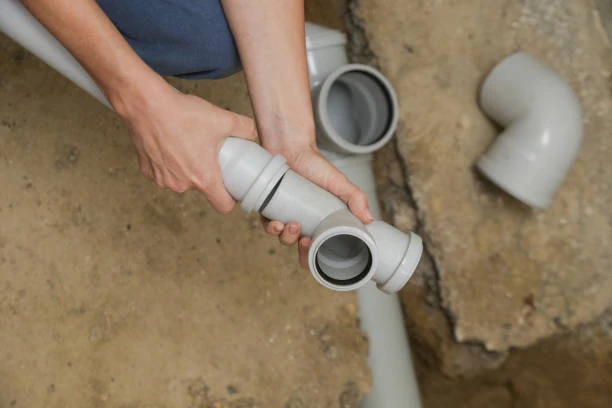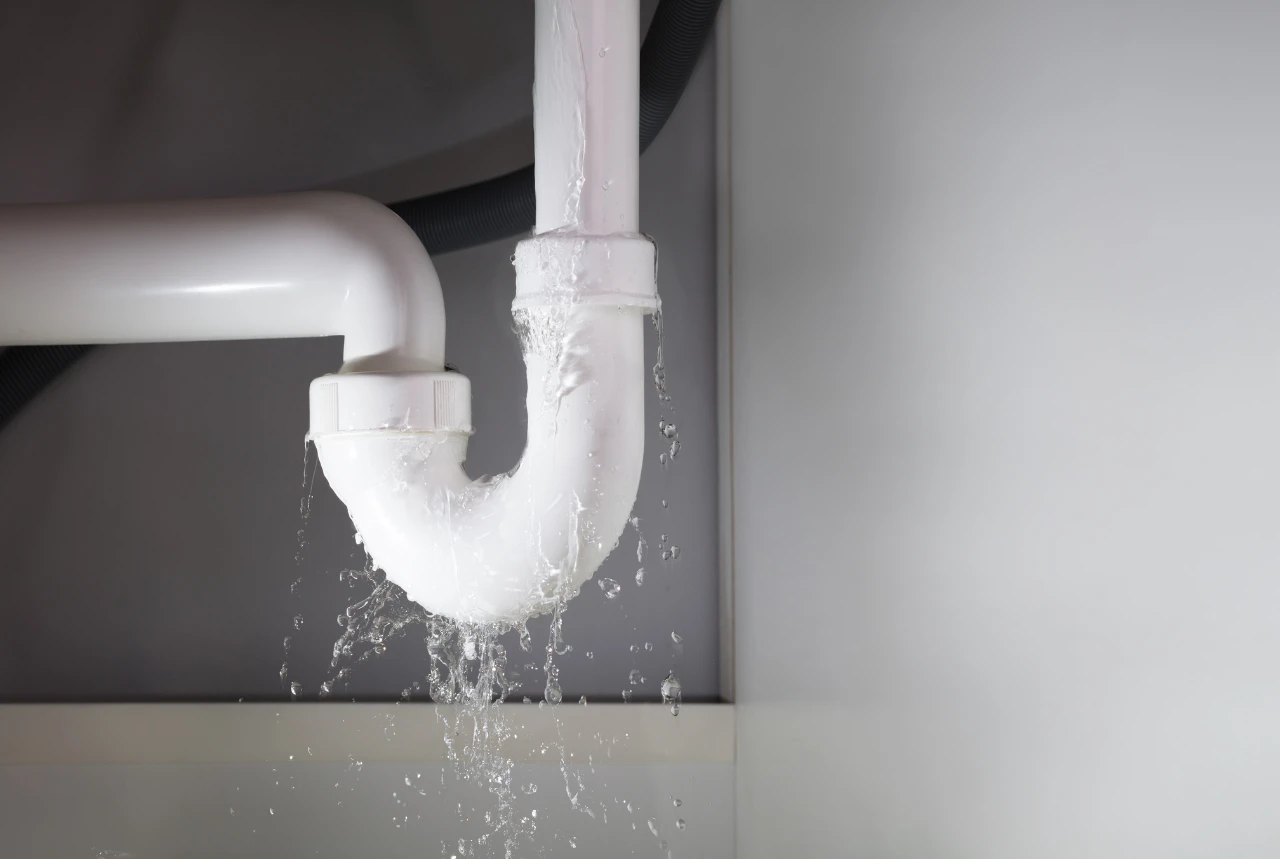Introduction: Why Consider Healthier Alternatives to PVC Pipes?
PVC (polyvinyl chloride) pipes have been a staple in construction and plumbing for decades. They are durable, affordable, and easy to install. However, PVC pipes have significant environmental and health concerns. The production and disposal of PVC release harmful chemicals, such as phthalates and dioxins, which can leach into drinking water. As sustainability becomes a top priority in the construction industry, exploring healthier alternatives to PVC pipes is crucial. In this article, we will explore eight sustainable and healthier alternatives to PVC pipes that offer both environmental and health benefits.
1. PEX Pipes: A Flexible and Non-Toxic Option
PEX (cross-linked polyethylene) pipes are a popular alternative to PVC pipes. These pipes are made from flexible plastic, which makes them easier to install and less prone to breaking. PEX pipes do not contain the harmful chemicals found in PVC, making them a safer option for drinking water systems.
Benefits of PEX Pipes
- Non-toxic: PEX does not leach harmful chemicals into drinking water.
- Flexible: Its flexibility allows for easier installation, reducing the need for joints and fittings.
- Durable: PEX pipes are resistant to scale and chlorine, ensuring longer-lasting performance.
- Energy-efficient: PEX provides better insulation, keeping hot water at the desired temperature for longer periods.
PEX pipes are ideal for residential plumbing and heating systems, making them a healthier and environmentally friendly choice over PVC.
2. Copper Pipes: A Traditional and Durable Choice
Copper pipes have been used for plumbing for centuries. While they are more expensive than PVC or PEX, copper pipes are a healthier alternative due to their non-toxic properties. Copper is naturally resistant to bacteria, making it ideal for drinking water systems.
Benefits of Copper Pipes
- Healthier: Copper does not leach harmful chemicals into water.
- Durability: Copper pipes can last for decades with proper maintenance.
- Antimicrobial properties: Copper kills bacteria and reduces the risk of microbial growth in the pipes.
- Recyclable: Copper is 100% recyclable, reducing its environmental impact.
Despite their higher cost, copper pipes are a safe and long-lasting option for those looking for a healthier alternative to PVC pipes.
3. Stainless Steel Pipes: Strong, Safe, and Recyclable
Stainless steel pipes are another durable and non-toxic alternative to PVC pipes. Made from a combination of steel, chromium, and other metals, stainless steel pipes are resistant to corrosion, making them ideal for both residential and commercial plumbing applications.
Benefits of Stainless Steel Pipes
- Non-toxic: Stainless steel does not leach harmful chemicals into water.
- Highly durable: These pipes are resistant to rust, corrosion, and scaling.
- Long lifespan: Stainless steel pipes can last for decades, making them a long-term investment.
- Recyclable: Stainless steel is highly recyclable, reducing its environmental footprint.
Stainless steel is an excellent option for plumbing systems that require strength and longevity, offering a healthier alternative to PVC pipes.
4. Bamboo Pipes: An Eco-Friendly and Biodegradable Option
Bamboo is a rapidly renewable material that can be used for piping systems. While bamboo pipes are still in the experimental phase for plumbing, they offer a promising solution for sustainable construction.
Benefits of Bamboo Pipes
- Eco-friendly: Bamboo is a fast-growing plant that requires little water or pesticides.
- Biodegradable: Bamboo pipes naturally degrade over time, reducing landfill waste.
- Sustainable: Bamboo can be grown and harvested without damaging the environment.
- Aesthetically pleasing: Bamboo pipes offer a natural, rustic look for certain design styles.
While bamboo pipes are not yet widely used, their potential to reduce environmental impact makes them an interesting alternative to PVC.
5. CPVC Pipes: A Chlorine-Free Alternative to PVC
Chlorinated polyvinyl chloride (CPVC) pipes are similar to PVC pipes but are treated with chlorine to increase their resistance to heat and chemicals. CPVC pipes are often used in hot water systems and are considered a safer option than traditional PVC due to their lower toxicity levels.
Benefits of CPVC Pipes
- Non-toxic: CPVC pipes are free of the harmful plasticizers found in regular PVC pipes.
- Heat resistance: CPVC can withstand higher temperatures, making it suitable for hot water applications.
- Durable: CPVC pipes are resistant to corrosion and chemicals.
- Recyclable: Like PVC, CPVC can be recycled, reducing environmental impact.
CPVC pipes are a safer and healthier alternative to PVC for plumbing systems that require heat resistance.
6. Glass Pipes: A Non-Toxic and Sustainable Choice
Glass pipes are a less common but increasingly viable alternative to PVC pipes. These pipes are particularly useful in medical or food-grade applications where purity and hygiene are essential.
Benefits of Glass Pipes
- Non-toxic: Glass does not leach harmful chemicals into water.
- Chemical resistance: Glass pipes are highly resistant to chemical reactions, ensuring safe water transport.
- Sustainability: Glass is made from abundant, natural materials and is fully recyclable.
- Clean and pure: Glass pipes maintain the purity of the transported fluid, making them ideal for food and medical applications.
Although glass pipes are more fragile than plastic alternatives, they offer exceptional safety and sustainability for specific uses.

7. Concrete Pipes: Durable and Long-Lasting
Concrete pipes have been used for infrastructure projects, such as stormwater drainage, for many years. While concrete pipes are typically not used for drinking water systems, they are a sustainable option for other plumbing and infrastructure needs, such as sewage and waste systems.
Benefits of Concrete Pipes
- Durable: Concrete pipes are highly resistant to wear and tear and can last for decades.
- Eco-friendly: Concrete is made from natural, abundant materials, and concrete pipes are fully recyclable.
- Fire-resistant: Concrete pipes offer superior fire resistance compared to plastic options.
- Low maintenance: Concrete pipes require minimal maintenance over time.
Concrete pipes are a reliable and sustainable option for underground and large-scale plumbing systems.
8. HDPE Pipes: Strong, Flexible, and Sustainable
High-density polyethylene (HDPE) pipes are gaining popularity as a sustainable and healthier alternative to PVC pipes. HDPE is a versatile plastic that is lightweight, durable, and resistant to corrosion, making it suitable for a wide range of plumbing applications.
Benefits of HDPE Pipes
- Non-toxic: HDPE does not leach harmful chemicals into water.
- Flexibility: HDPE pipes are flexible, reducing the need for joints and minimizing the risk of leaks.
- Corrosion-resistant: HDPE pipes are highly resistant to chemicals, corrosion, and UV degradation.
- Recyclable: HDPE is 100% recyclable, making it a sustainable option for plumbing systems.
HDPE pipes offer a healthier, safer alternative to PVC, with long-lasting benefits and minimal environmental impact.
Conclusion: Embracing Healthier and Sustainable Alternatives to PVC Pipes
The demand for healthier and more sustainable plumbing materials is growing as the environmental and health impacts of PVC pipes become more apparent. From PEX and copper to bamboo and HDPE, there are many viable alternatives to PVC that offer improved safety, durability, and recyclability. By adopting these healthier alternatives, we can help reduce plastic pollution, protect human health, and move toward a more sustainable future.
Frequently Asked Questions
- What are the health risks of PVC pipes? PVC pipes can leach harmful chemicals like phthalates and dioxins into drinking water, potentially affecting human health over time.
- Are PEX pipes safer than PVC pipes? Yes, PEX pipes are non-toxic and do not leach harmful chemicals into water, making them a healthier alternative to PVC.
- Can copper pipes be used for hot water systems? Yes, copper pipes are durable and can handle both cold and hot water systems without leaching harmful substances.
- Are bamboo pipes widely available? Bamboo pipes are still in the experimental stage and are not yet widely available for plumbing use, but they show promise as an eco-friendly alternative.
- What are the benefits of HDPE pipes over PVC pipes? HDPE pipes are flexible, durable, and resistant to corrosion. They are also non-toxic and fully recyclable, making them a healthier and more sustainable alternative to PVC.


















